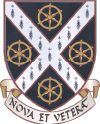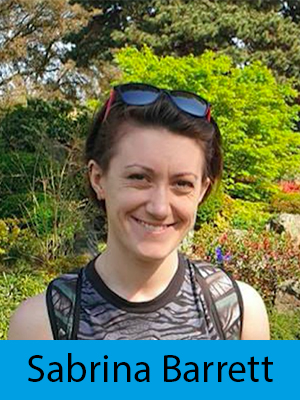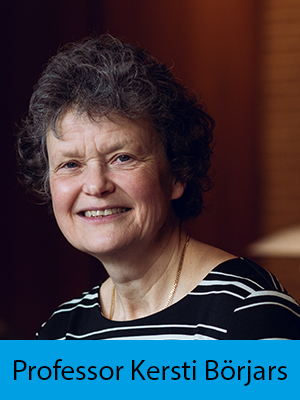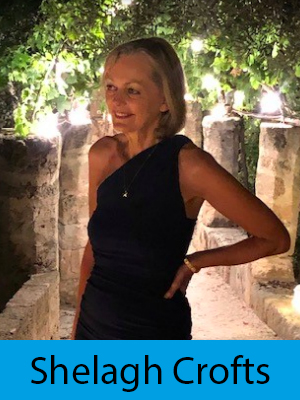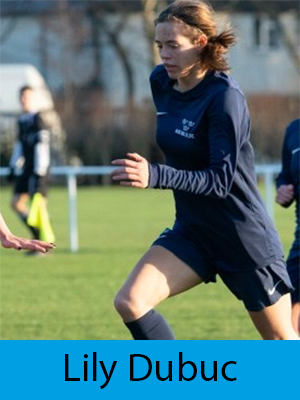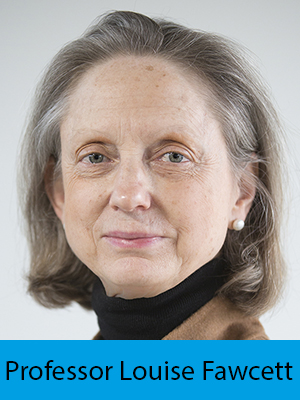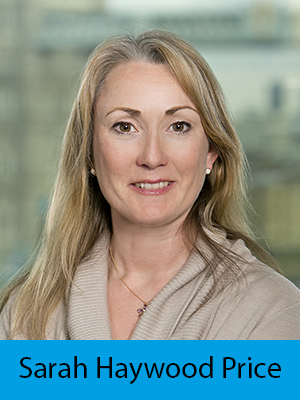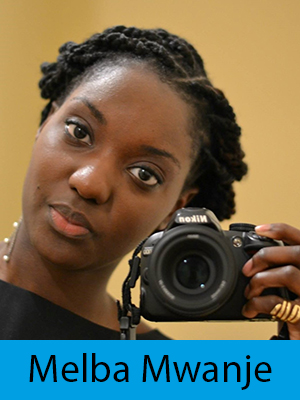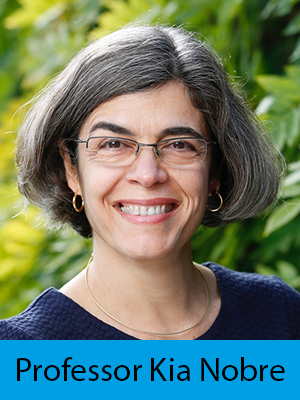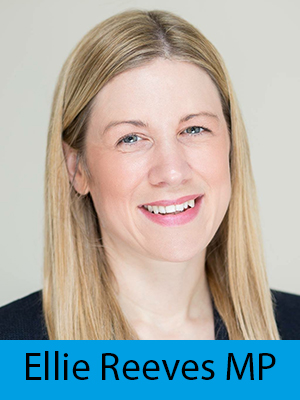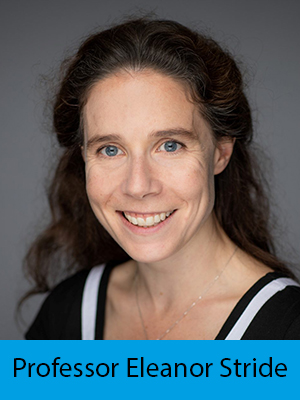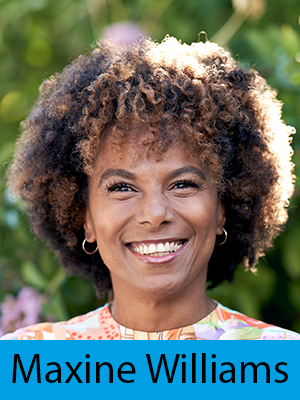Each year, the world celebrates International Women’s Day on 8 March, a celebration of the social, economic, cultural and political achievements of women.
One of the first Oxford Colleges to admit both men and women, St Catz is proud of its female fellows, students and alumni.
Along with the JCR’s Women’s Representative, Iris Petrillo, we asked a few of our inspirational women a few questions about their careers, lives and experiences as women – and what advice they have for any young women looking towards their futures.
Read what each of them had to say…
Sabrina Barrett
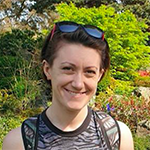
DataOps Engineer
Catz alumna (2011, Engineering Science)
How has studying at Oxford allowed you to build confidence as a woman?
Studying at Oxford allowed me to prove to myself that I could work hard and learn many different things, and gave me an amazing network of people to rely on for fun, support and as role models. Together these (still) give me the confidence to believe in myself and act in line with my values, such as gender and racial equality.
What do you hope for in the next 100 years as a woman?
Wide-scale implementation of actions to address climate change and the intersecting inequalities which are disproportionately linked to race, gender and class.
What advice would you give to any young, aspiring women who want to achieve great things?
We each have the potential to do amazing things; however it takes a combination of hard work and luck to achieve them. As a woman or non-binary person you may have more external factors to work through, but you also have access to networks of others who want to help you succeed – find them, use them and ask for help if you can!
What are the biggest challenges that you have faced in your career and how did you overcome them?
I think one of the scariest things was changing career path from professional services to tech, as I needed to have a lot of confidence in myself and my abilities in order to prove that I could do something completely different. I was lucky enough to encounter people who were willing to take a chance on me, but they wouldn’t have if I didn’t believe in myself first.
What’s your favourite quotation by a woman?
I don’t keep track of quotes, but Chimamanda Ngozi Adichie is a good example of someone that says some really valuable things.
Professor Kersti Börjars
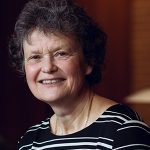
Master of St Catherine’s College
Did you have a female role model when you were younger?
One of the first things I read as a child was the books about Pippi Longstocking, a great character, probably very Swedish. Her independence, strength and ability to do almost anything – including picking up her own horse – certainly impressed me when I was little, and maybe some of it has stuck with me.
You are the first female Master at Catz – how do you feel about this?
Personally I’m just really pleased and proud to be the Master of this wonderful College, but I know how important it is for many others that this position is now held by a woman. Anything that breaks down barriers must be a good thing.
What advice would you give to any young, aspiring women who want to achieve great things?
I would give the same advice to anybody who seeks it: there is never a perfect time to make a decision, or if there is, we only know it afterwards. The most important thing is to be open to opportunities, whenever and however they come.
What are the biggest challenges that you have faced in your career and how did you overcome them?
One of the challenges that comes up most frequently in the discussion about women and careers is how to juggle a work with being a mother – amplified in recent lockdowns with schools being closed. Here I think I was greatly helped by having grown up in Sweden; sharing responsibilities equally is the natural way to go and this is what we did. It is of course more and more common in the UK too for parents to share responsibilities, and changes in rules about parental leave are helping. I’m pleased to see two male Catz Fellows taking shared parental leave and hope that society continues to strengthen its support for a more equal approach.
What characteristics do you think are important for success?
I think persistence is important, with the understanding that flexibility is vital too. A cheerful disposition also helps.
Do you have a favourite quotation by a woman?
I’ll finish as I started: with Pippi. A quote from her displayed in the bookcase in my office translates into English as something like: ‘That is something I have never tried before, so I am pretty sure I can do it’. Some claim she didn’t actually say it because it’s not written down in the books, but I reckon she did. With recent, unprecedented events, it’s helped remind me that we can often face more than we think.
Shelagh Crofts
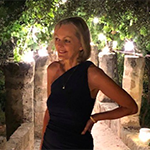
Director of Classified Advertising at Condé Nast
Catz alumna (1974, Chemistry)
How has studying at Oxford allowed you to build confidence as a woman?
The collegiate system allowed me to mix with students studying subjects I was not familiar with before university. It also enabled me to meet a wide variety of people from very different backgrounds. Both of these aspects of life at university helped me to increase my confidence and encouraged me to be curious when in new situations.
What advice would you give to any young, aspiring women who want to achieve great things?
Success is down to 80% effort.
What do you hope for the next 100 years as a woman?
Equality in all walks of life.
What’s your favourite quotation by a woman?
‘I could not, at any age, be content to take my place by the fireside and simply look on. Life was meant to be lived. Curiosity must be kept alive. One must never, for whatever reason, turn his/her back on life.’ – Eleanor Roosevelt.
Lily Dubuc
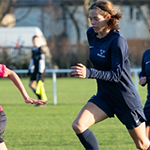
Professional footballer
Catz alumna (2019 Visiting Student, English Literature)
How has studying at Oxford allowed you to build confidence as a woman?
Studying at Oxford was the pinnacle of my academic, athletic and social experience at university. As a visiting student, I found the culture to be incredible as my peers were academically talented, passionate and social. The women especially impressed me as they were so welcoming and inspirational. Being around so many incredible women helped me gain confidence through the support and community they provided.
What do you hope for in the next 100 years as a woman?
I hope that in the next 100 years, women will not doubt their own right to education, travel and athletics. I want women to feel as confident in their ability to be scholars, travellers and athletes as men feel today. I hope that impostor syndrome does not impact women in the next century.
What advice would you give to any young, aspiring women who wants to achieve great things?
If you have made it into the room, you belong there. Don’t let anyone tell you that it was a fluke. Your presence, your opinions and your voice matter. Don’t diminish them to make others comfortable in mediocracy.
What are the biggest challenges that you have faced in your career and how did you overcome them?
As a professional footballer the greatest challenge I’ve faced is financial independence as a result of sexism. Football is a game for everyone, yet women are extremely underpaid. In order to overcome this hurdle, I have worked two or three jobs in addition to my career in order to make ends meet and save for the future. My goal is to use my voice and media platform so future generations are given the opportunities to succeed that men are given in the athletic field. Women are a solid investment and it is time they have the financial backing to succeed.
What’s your favourite quotation by a woman?
My favourite quote is by Erin McKean: ‘You don’t owe prettiness to anyone. Not to your boyfriend/spouse/partner, not to your co-workers, especially not to random men on the street. You don’t owe it to your mother, you don’t owe it to your children, you don’t owe it to civilisation in general. Prettiness is not a rent you pay for occupying a space marked female‘.
Professor Louise Fawcett

Professor of International Relations
Catz Fellow
Did you have a female role model when you were younger?
Probably my mother – though she was modest about her own achievements – qualifying as a doctor in the first female cohort at Middlesex Hospital in the 1950s. Since becoming an academic, I have a couple of female colleagues who have inspired me.
How has studying and working at Oxford allowed you to build confidence as a woman?
Studying – not much. I think as a woman one always felt a bit insecure, particularly at the time I was a graduate student. This was reflected by the very few women in the field and the general (not universal) timidity of women in the classroom and workplace. Still, I was pleased and surprised(!) when my doctoral thesis was rapidly accepted as a book by a University press. Only by getting a position, first a research fellowship, then a fellowship, and by staying the course, have I finally gained in confidence and see the academic world through a different lens.
You are the longest-serving female Fellow at Catz – how have things changed in that time?
A great deal. Women and their particular concerns are now taken seriously, which was not the case when I was elected Fellow. Having children to care for or taking maternity leave were not much factored in. Academic life often revolved around five o’clock seminars and post-seminar drinks and dinners, which were not family friendly. We tried to cope the best we could and keep quiet so as not to draw attention to ourselves.
What advice would you give to any young, aspiring women who want to achieve great things?
Be confident; speak out against obvious injustice; never, ever feel insecure or think others are better than you if you have childcare or other responsibilities; believe in yourself and your capabilities. Just because you have to multi-task, you are not a lesser academic – this was the big myth and obstacle as I was trying to get started. It is just that – a myth! Yet it is perpetuated by the hierarchies in our fields where male colleagues continue to be celebrated and cited to a far greater degree than their female counterparts – there are statistics to prove this!
What are the biggest challenges that you have faced in your career and how did you overcome them?
I have been lucky in securing an academic position at a time when there were very few women and there was a push to include more. We are still catching up. Still, entry to an academic career with small children and a much more rudimentary childcare system was challenging – there was no flexible working model. Certainly, the work-life balance has always been an issue: wanting both to be at the school gate and keeping up with my career. There is the constant sense that you are doing neither job well – but see my response above to refute that!
What characteristics do you think are important for success?
Persistence, confidence and resilience.
Sarah Haywood Price

Managing Director, Advanced Oxford
Catz alumna (1988, Biology)
Did you have a female role model when you were younger?
Rosalind Franklin – I studied biology and she is definitely someone I still admire.
How has studying at Oxford allowed you to build confidence as a woman?
Studying at Oxford gave me many things that have contributed to my sense of confidence as a woman, particularly throughout my career. The analytical and problem solving skills I developed – knowing how to ask the right question and to set about answering it – have had a great effect, in that I felt well equipped to undertake projects, make decisions, use my judgement. I think that the other area that has been essential has been my communication and interpersonal skills. The tutorial system means that you can’t hide – you have to articulate your point of view, to structure and present arguments to people who know and care about the subject deeply. It is a pretty good way of learning about non-verbal communication too.
What advice would you give to any young, aspiring women who want to achieve great things?
Your career and successes are shaped as much by the things that don’t happen – the jobs you don’t get, the promotion that goes to someone else, the idea that doesn’t work; so don’t sweat the failures – learn from them and recognise that new doors open as a result. Also, value relationships and work your network as hard as you can. In the last decade, all of my work has come from opportunities discovered through networking. Finally, if you take a break to have children, take on caring responsibilities etc., your career is not over. Within a couple of weeks of returning from each maternity leave, no-one even remembered that I hadn’t been there for the last eight months.
What are the biggest challenges that you have faced in your career and how did you overcome them?
I am a huge proponent of flexible working and I have worked part-time, or some form of flexible working, since I had children. You need to learn and develop a set of techniques for making this work (one day I will write a book on this) but you can be incredibly focused and productive if you are organised. However, you also have to be pretty ruthless at prioritising, so I found that all of the things that I needed to do to progress my career got pushed into the ‘nice to do, if you have the time’ list. For a while, this did take a toll on my career, particularly because I neglected the work to build and develop my network. Fortunately, I recognised what was happening and I started to make time for this. I also would say that if a job isn’t right for you – and there’s a good chance that this will happen at some point – be prepared to walk away.
What characteristics do you think are important for success?
Self-belief; be prepared to take some risks; never neglect your work/life balance; surround yourself with people you can go to for advice, guidance, help and support.
Do you have a favourite quotation by a woman?
This is from my Grandma: ‘moderation in all things, including moderation’.
Melba Mwanje
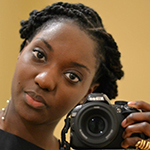
Life coach
Catz alumna (2007, Human Sciences)
Did you have a female role model when you were younger?
My mother has consistently inspired me to use hope to overcome fear, from decisions that she made before my birth to today.
How has studying at Oxford allowed you to build confidence as a woman?
The tutorial system at Oxford (where we learn via regular, lengthy one-to-one discussions with academic experts) helped to improve my speaking skills, which significantly improved my confidence. Specifically, Human Sciences tutorials with Amanda Palmer were invaluable.
What advice would you give to any young, aspiring women who want to achieve great things?
Journal, and try to keep learning as much as you can about yourself through every experience, so that you retain the ability to hear your instincts.
What are the biggest challenges that you have faced in your career and how did you overcome them?
Love has been my biggest distraction! So I have learned to blend love with my career. I do work that I love, and I carefully select the people around me to be those who love as sacrificially as I do, who enjoy actively supporting my dreams, and who are happier when I am happy.
What characteristics do you think are important for success?
Faith in oneself, generosity and tenacity.
Do you have a favourite quotation by a woman?
‘Everyone has good and bad in them, even me.’ Words spoken by Miriam Nanteza Musoke to remind us to understand people as complex, not to idolise, and not to demonise each other for being one thing, but to keep accepting that every person is multidimensional, capable of unexpected behaviours, and vulnerable.
Professor Kia Nobre

Head of Department of Experimental Psychology and Chair in Translational Cognitive Neuroscience
Catz Fellow
Did you have a female role model when you were younger?
The first woman who made me ponder about the discrepancies between women’s talents vs. acknowledged contributions to the world was my grandmother – Sophia – wise as her name. As a rare exception in male-dominated Brazil at the time, she managed to keep a successful career alongside her big family. It was with my grandmother that I travelled the world on ViewMaster disks (who remembers those?), marvelled at art through books, and investigated the world through collections of rocks and science kits. She inspired me to explore and to nurture others around me.
How has working at Oxford allowed you to build confidence as a woman?
I had a confident streak already before coming to Oxford. Being here has helped me build on my confidence to allow space for humility – to admire and celebrate the amazing achievements of colleagues across the spectrum of human potential.
You were the first female Tutorial Fellow in a science discipline at New College – what did this mean to you?
I was astonished this could indeed be the case. I like to focus on the positive. I felt no burden and felt lucky to play a role in positive transformation.
What advice would you give to any young, aspiring women who want to achieve great things?
My advice would be so simple as to seem banal. Use your own yardstick to measure yourself. Take the challenges that you place for yourself rather than those others try to impose on you. Bloom in your own way.
What are the biggest challenges that you have faced in your career and how did you overcome them?
Inevitably, any interesting career is riddled with all sorts of challenges. I never encountered a magic formula to overcome them, but rather took my typical scientific approach to understand the nature of each and to experiment with different solutions. One magical ingredient is always taking the context and others’ perspectives into account too.
What characteristics do you think are important for success?
I’m a purist and I like to believe that to succeed in science it takes genuine curiosity for (the principles behind) how it works and love for discovery and for continuous learning.
Do you have a favourite quotation by a woman?
‘Think like a fish.’ Wise words from my mum. Cryptic, I know.
Dr Aśka Przewrocka

Postdoctoral researcher, The Francis Crick Institute
Catz alumna (2012, MSc Experimental Therapeutics)
How has studying at Oxford allowed you to build confidence as a woman?
I think one of the most impactful aspects of being at Oxford was being exposed to so many confident and driven women. The confidence and awareness of one’s own abilities was very infectious and inspiring.
What do you hope for in the next 100 years as a woman?
I hope the term ‘token women’ is out of circulation by then. There won’t be a female boss, a female speaker, a female leader; there will just be bosses, speakers and leaders.
What advice would you give to any young, aspiring women who wants to achieve great things?
Find your authentic voice and what brings you joy, then make a career out of it!
What are the biggest challenges that you have faced in your career and how did you overcome them?
I think the single biggest challenge for me was to figure out what I actually wanted my career to be. So I followed the rule of: say yes to every opportunity, figure out what you like and what you are good at, then say no to almost everything and laser focus.
What’s your favourite quotation by a woman?
‘It is never too late to be what you might have been.’ – George Elliot.
Ellie Reeves MP
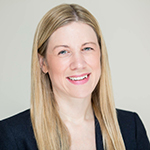
Member of Parliament for Lewisham West and Penge
Catz Alumna (1999, Law)
Did you have a female role model when you were younger?
Emily Davies. She was a Suffragist and pioneer for women going to university. My house at school was named after her so she inspired me from a young age.
How has studying at Oxford allowed you to build confidence as a woman?
I went to a fantastic south east London comprehensive but a large proportion of students did not go on to higher education. Going to Oxford helped raise my aspirations and help me believe that anything was possible with hard work and determination.
What advice would you give to any young, aspiring women who want to achieve great things?
One lesson that I have learnt is that sometimes you have to seize an opportunity and take a risk if you want to achieve your dreams. Don’t be put off by barriers that may seemingly be in your way. Instead, work to break down those barriers and be the change in society that you want to see.
What are the biggest challenges that you have faced in your career and how did you overcome them?
I was a lawyer for many years before entering Parliament – it was difficult to find a proper work /life balance after the birth of my first child when I was a partner in a law firm, so I set up my own legal consultancy. Working for myself gave me that balance.
What characteristics do you think are important for success?
Honesty, courage and respect for others.
Do you have a favourite quotation by a woman?
Margaret Bondfield, the first female cabinet minister, on being appointed to the cabinet: ‘When I accepted the job I did so knowing well it touches much more than merely my own self – it was part of the great revolution in the position of women which had taken place in my lifetime and which I had done something to help forward’.
Professor Eleanor Stride

Statutory Professor of Biomaterials
Catz Fellow
Did you have a female role model when you were younger?
Not a real one, but I had a lot of old books and magazines from the 1930s and 40s that featured very strong female characters, for example girl detectives, pilots, explorers and looking back I think that was actually really important. I think it’s meant that I never regarded my gender as something to consider in choosing what I wanted to do.
How has working at Oxford allowed you to build confidence as a woman?
I’m not sure I can answer that as I don’t see myself as a ‘female engineer,’ I’m an engineer. The fantastic opportunities that Oxford offers for interdisciplinary research, for working with amazing people and with world-class facilities has enabled me to build a team and for us do work that I am very very proud of, but my gender hasn’t really entered into it.
You work in a traditionally male-dominated industry – has this had an impact on you or how you approach things?
I think I’ve been extremely lucky to have encountered sexism only on a few occasions and where I felt able to combat it effectively. Engineers are typically much more interested in the problems they’re solving than the people solving them. You’re judged on your technical ability.
What advice would you give to any young, aspiring women who want to achieve great things?
Go for it! Work hard and focus on what matters. Your gender has nothing to do with your ability to be a great scientist, musician, philosopher… whatever it is that inspires you.
What are the biggest challenges that you have faced in your career and how did you overcome them?
Having to move from a position where I was in the lab working on problems directly, to one where I was managing research. I’m not sure I’ve overcome that completely (I still miss being in the lab) but you have to treat the management tasks as an engineering problem as well.
What characteristics do you think are important for success?
You have to really care about what you are trying to do; to learn how to deal with failure/criticism; to have a mechanism for ‘switching off’ so that you don’t get consumed by work; and above all a sense of humour.
Do you have a favourite quotation by a woman?
I’m not sure it’s by a woman but it’s about one. I’m passionate about dancing and although this was written about dancing, I think this applies to everything: ‘Ginger Rogers did everything Fred Astaire could do, backwards and in high heels’.
Maxine Williams
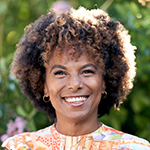
Chief Diversity Officer at Facebook
Catz alumna (1992, Law)
Did you have a female role model when you were younger?
I had plenty of role models in my family as well as my community. My mother and grandmother were instrumental day in and day out in many ways. They taught me that limits were made to be broken.
How has studying at Oxford allowed you to build confidence as a woman?
The approach to education at Oxford felt very much like a self-service canteen. No spoon feeding! I had to learn to manage my own plate and seek the learning myself. This pushed me to take responsibility for my education and success in a way that I had never experienced before. The skills I developed navigating this space helped me to have confidence in every endeavour since.
What advice would you give to any young, aspiring women who want to achieve great things?
As an aspiring female leader, I want you to know that your voice and lived experiences are very important. Always know and walk in your truth. No matter where you are in your business or company, you have a unique perspective that will help build an inclusive environment. Put your voice and expertise to work in every meeting, at every table and in every decision; you make and every step you take.
What are the biggest challenges that you have faced in your career and how did you overcome them?
There will be many challenges throughout one’s journey. I overcame them by understanding the power of constructive feedback. It should never be seen as the enemy of ambition, but rather, as its ally. When faced with challenges, I’ve learned to push boundaries and my own limits. I’ve also gave myself permission to fail but fail fast, learn and build better again from those experiences.
What characteristics do you think are important for success?
In early school days, I learned how to collaborate with others – to combine ideas and strengths so that we could get to a better place than we each could have done alone.
Do you have a favourite quotation by a woman?
Yes, I’ll quote my mother and grandmother, ‘Try a ting’. It embraces the notion to take risks and make bold moves. When you do, you’ll transcend the limits that have been set for you.
